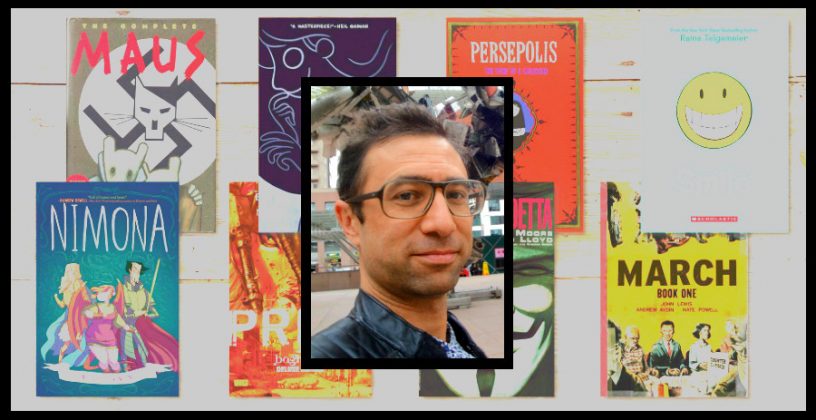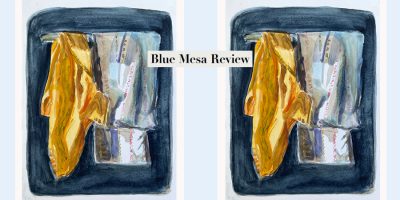In early November, Assistant Professor Jesús Costantino conducted a free, public webinar for the National Humanities Center. The webinar, with the deceptively simple title, “The Graphic Novel,” offered a complex analysis of the history of the graphic novel form, of its technical peculiarities, of its socio-political impacts, and of its uses in the classroom. The webinar was part of the National Humanities Center’s ongoing “Humanities in Class” series that enables the public and educators to hear from and interact with leading scholars from across the humanities on a range of topics. This particular webinar grew out of Dr. Costantino’s ongoing development of comics and graphic novel courses at UNM and out of his research engagements with the politics of visual culture.
Dr. Costantino also recently published a co-edited special issue titled, “Permadeath and Precarity” for The Journal of Gaming and Virtual Worlds. Drawing on Judith Butler’s deployment of the term “precarity,” Dr. Costantino and his co-editors contend that new video game experiments with the mechanics of death have arisen in response to the contemporary tenuousness of human existence in the face of anthropogenic climate change and neoliberal economics. In this special issue, he and his co-editors argue that so-called “permadeath games” are uniquely situated to voice the inherent precarity of what it means to live and play in the early twenty-first century.
Additionally, Dr. Costantino presented material from what will be his second book project at the Association for the Study of the Arts of the Present (ASAP) Conference in Oakland, California. The talk, titled “Fungus, Brains, Twinkies: Flavors of Apocalypse,” analyzes recent work about the ecological end times, including the film Zombieland and Anna Tsing’s anthropological study The Mushroom at the End of the World, and looks closely at the many self-reflective moments of eating found in works about the end of the world. Similar to the well known food-based epiphanies found in Marcel Proust’s In Search of Lost Time and Ralph Ellison’s Invisible Man, eating in the end times functions as a kind of history-breaking epiphany in the apocalyptic imaginary.




